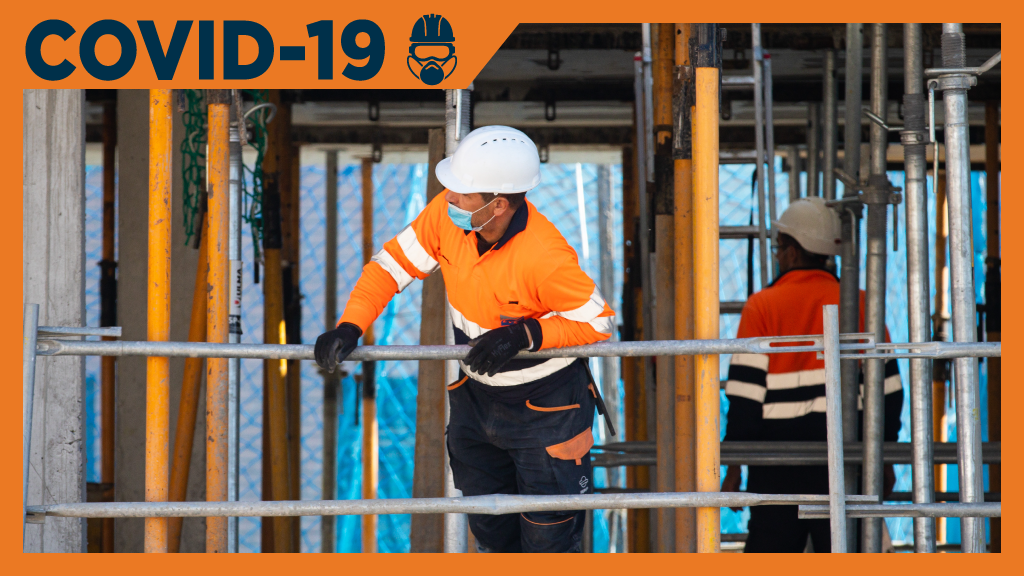A consultant for the Mechanical Contractors Association of Canada (MCAC) told colleagues participating in an advocacy webinar recently that the construction sector has spoken with a loud voice as it has lobbied the federal government for targeted COVID-19 recovery policies.
Lobbyist Rob LeForte, a vice-president at Impact Public Affairs Corp. (Canada), said a joint federal roundtable discussing recovery measures has identified four principles that he says are critical to getting stimulus out the door. The roundtable includes representatives from a half-dozen federal ministries as well as key federal construction stakeholders with MCAC represented.
“We are laying out a series of concerns with the federal government that highlights what the problems are to getting started,” LeForte said. “I think all of that has been well received so far. It is a matter of us keeping up the pressure and making sure they deliver on what they need to to make sure the construction sector continues to operate and continues to drive the economy.”
LaForte was one of five presenters during MCAC’s Virtual Business Conference which convened May 27 to discuss next steps for the construction sector as it seeks to emerge from the COVID-19 pandemic.
Besides the stimulus discussion, LeForte offered a candid analysis of the Canadian economy and its future prospects — expectations are that the economy could continue to sputter for years, he said — and updated association members on MCAC advocacy on wage and other business subsidy programs.

LeForte noted that federal Infrastructure Minister Catherine McKenna has issued a preview of some shovel-ready stimulus spending measures that would be announced in the near future. There will be more stimulus spending announced after that, LeForte suggested.
“The construction sector has taken a very proactive approach to this crisis and definitely has had an outsized voice,” he explained in discussing advocacy through the joint roundtable.
The MCAC has been a part of consultations through the National Trade Contractors Coalition of Canada.
A main issue of discussion has been what it means to be shovel-ready. The constructors have told the federal government they want to find a way to salvage the 2020 construction season, LeForte said.
As for the four principles discussed, LeForte said the government is leaning towards federal projects; it wants to be able to control funding flows and such matters as how fast shovels get into the ground; it wants to unroll the stimulus money in safe settings; and longer term, it wants to ensure businesses are solvent and have the liquidity to remain profitable through the life of the projects and when more stimulus money is announced.
“The four principles are very critical to getting the projects out the door,” said LeForte.
The recovery will be led by the federal government, he said, but it will “drag” the provinces with it. Among the federal focuses will be a greener economy
“I think that bodes well for many of the systems MCAC members put in place,” said LeForte.
The point has been made that many construction firms are facing uncertainty with poor cash flow, making it hard to keep apprentices employed, he noted.
“The government will work very closely with the sector to solve that problem, and we are going to be a part of those discussions.”
LeForte said early on in the pandemic MCAC advocated hard to keep construction defined as an essential service, and now it is making the case that construction should remain in operation during a second wave of COVID-19. To manage this, the builders and the governments will work to ensure the highest health and safety standards possible.
“One of the reasons is the governments know that March and April are a little bit different than June, July and August in the construction sector and the economy really can’t take the loss of an entire construction season,” he said.
LeForte predicts the recovery will be slow with many sectors limping along until the discovery of a COVID-19 vaccine. But even then, it will take a long time to roll out the vaccine. There will be a prolonged period of low consumer confidence, significant sick leaves and supply chain disruptions, and also regional disparities.
“The City of Montreal could continue to face challenges much longer, I expect, than Charlottetown or St. John’s or Victoria, B.C,” he added.
LeForte noted the RBC is predicting a hit to the GDP of 7.1 per cent in 2020, the worst in a lifetime, and businesses may continue to be affected by the virus until the end of 2022.
“The expectation is that the economy will continue to sputter for years even with activity returning to near normal,” he said.
Follow the author on Twitter @DonWall_DCN.











Recent Comments
comments for this post are closed